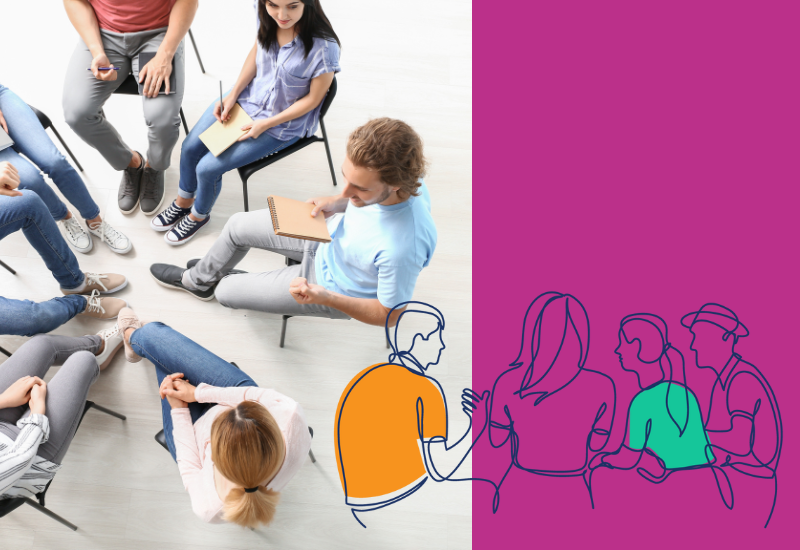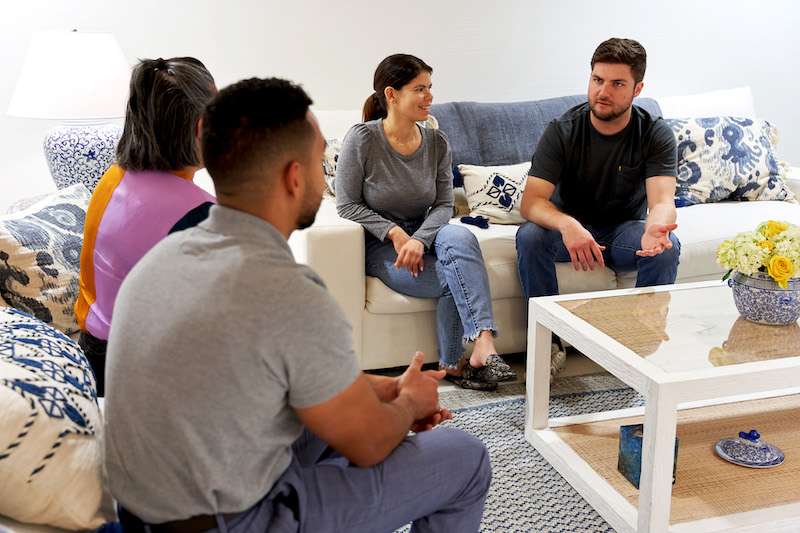Mental illnesses and eating disorders can take a devasting toll on people’s lives. Mental health conditions also impact the lives of family members, who may desperately want to relieve their loved one’s suffering, but aren’t always sure how to help. In Part 2 of our interview, Dr. Wendy Oliver-Pyatt discusses effective approaches to treating complex mental health disorders, and how Galen Hope can help.
Galen Hope takes a “whole person” approach to care. What does that mean, and how does help people with mental health or eating disorders heal?
At Galen Hope we really follow a bio-psycho-social-spiritual model for care.
That means leaving no stone unturned.
Biological
On the biological sphere, we have to look at any comorbidities, medical or psychiatric, that could be fueling the problems or the symptomatic behavior.
What we now understand is that the vast number of patients who need higher levels of care struggle with psychiatric comorbidities. Very commonly, one of those comorbidities is trauma. Trauma can have a profound effect on our emotional functioning. It can cause people to have feelings of shame or worthlessness, which may trigger disordered eating behaviors and contribute to depression and other mental health disorders.
Psychological and Social
In the psycho-social realm, we have to look at the person’s lived environment.
- What are their psychological or temperamental features?
- Do they have black or white thinking?
- Are they perfectionistic?
These are different temperamental features that we all may have to some extent. But it’s a matter of how far on a continuum we are that may affect our mental health.
Then we need to tie that into the social environment. We see many, many patients who are in a social environment in which people are trying to be helpful, but within the community at large or even sometimes in their more immediate system or family system, there’s things that are really painful or difficult for people to address. All of that makes up the psycho-social world that they’re living in.
Spiritual
When it’s appropriate for certain patients, we also look at the spiritual realm because having a connection to a higher power or some element of spirituality can also be very sustaining and fulfilling for people.
In treatment, we have to look along the whole continuum, addressing the psychiatric issues, addressing the psychosocial issues, addressing the nutritional issues, using the health at every size model to be sure that we’re doing no harm in any of those areas, and that we’re building upon the person’s strengths and passions.
Hope
Why is “Hope” in Galen Hope’s name?
Hope is central to everything that we do in life.
Having a sliver of hope is a part of why we all get up every day and do what we’re doing.
Why am I doing this interview right now? I’m doing this based on some hope that by speaking with you and making myself available to somebody looking at this conversation, that I’ll give hope to somebody. That hope is what helps us put one foot in front of the other each day.
Unfortunately for people that have mental illnesses or are in different situations where they may be struggling, they can experience a sense of helplessness – that no matter what they do they just can’t get a sense of satisfaction, meaning, or fulfillment, or connection in their life.
So, hope is really what gives us the fuel that we need to do the work, which is the mental or physical energy directed toward a goal. The work is very important in the healing process. It’s coming in and talking in therapy, talking in groups, self-examination, and taking steps.
The only thing that is going to make any one of us do any work, really, at the end of the day, is hope.
For people who are struggling or have had that experience of treatment, that hope can start to get erased.
As providers, we have hope for our patients, even when they don’t. We want to be able to discover where the shortcomings came in their previous treatment. Oftentimes people think it was they who failed treatment. But when we look under the cover, we can usually see where things didn’t get finished, if you will.
What are the culminating events that might cause someone to seek treatment for an eating disorder?
In eating disorders, so often the pain and the struggle is something that’s hidden to people outside of the person’s life. And oftentimes, what is needed for somebody to come to a higher level of care is their loved ones or a therapy team to help the person recognize the need to enter treatment and to receive more care.
It’s those loving relationships that also have boundaries, hopefully, in them, that can help shore up the energy to get somebody to say, yes, I need to receive this care.
An eating disorder can be very dangerous in that regard because the person may not recognize that they’re in trouble medically, and the suffering may be something that’s very hidden.
The Ingredients for Healing
So in terms of why Galen Hope, what makes Galen Hope different?
I think that what makes Galen hope so very special is the attention to detail in all of the interactions. So, whether it’s the parent or the person affected by the condition, in the very first phone call, the expectation we have is that the person will be responded to, respected, honored and cared for from the very beginning.
And in all domains of care, whether it’s the phone call you make to the admissions team or the first day of treatment, when you walk in the door and you meet with a care partner, whether you’re a family member who’s scared and confused, that there’s the attention to detail again along the bio-psycho-social-spiritual model.
What help for families do you have while their loved one is in treatment?
I believe that the family unit is a very important unit where sometimes a lot of pain is held, and also, where a lot of hope exists.
And it’s through our family program, as one example, that we want to make sure that any struggles or pain or concern or confusion or fear or any kind of emotional barriers are looked at and explored so that the best opportunity for a good outcome exists.
How do you use high frequency therapy and other forms of therapy to support healing?
Among the foundations of treatment at Galen Hope that I believe are absolutely critical to healing is a combination of high frequency individual therapy with a strong therapeutic alliance with a primary therapist. This is a relationship where some of the deepest aspects of the person’s pain can be uncovered.
That in combination with a therapeutic milieu that’s small enough in nature for very meaningful connections to form, and also shared experiences can be built upon. It’s the relationships within the group setting, combined with the individual therapy, where so much healing can happen.
When you add to that the exposure therapy that we do at the appropriate time in treatment, there is just a wonderful opportunity for this healing trajectory to take place because our soul actually wants to heal, when given the right ingredients. And so often in treatment, these ingredients are lacking.
What type of an environment should clients expect at Galen Hope?
When somebody takes a very big step to come into treatment, we want to be incredibly thoughtful about what they’re going to experience when they walk in the door.
A nurturing environment that respects each individual is incredibly important to us at Galen Hope.
Within that nurturing environment, there’s the physical space that’s very important. Our nervous system is aroused. We’re afraid. We don’t know what to expect. So the physical location itself is very important to help put somebody more at ease.
Another thing that’s very, very important is inclusivity.
Whatever a person’s true self is, it is something that we embrace with open and loving arms. We really think of that loving environment, which really shows that our heart is in it for our patients and also for each other. The nurturing environment has to apply to families, to patients, and within our relationships, within our own team, because that’s really the energy that we want to have around us that helps us bring out the best of who we are as individuals.
We respect each other, we honor each other, we care for each other. And that really trickles down into everything that we do at Galen Hope.
THE ROAD TO WELLNESS STARTS BY SEEKING HELP. TODAY.
Built on the principles of assertive community treatment, Galen Hope is an eating disorder and mental health treatment center offering individualized treatment options that include Intensive Outpatient (IOP) and Partial Hospitalization Programs (PHP). As a “Community of Integrated Wellness,” we pride ourselves in fostering a thoughtful and meaningful care experience that can guide our clients on their road to recovery and increased quality of life, regardless of diagnosis. Galen Hope currently offers separate, age-specific programming for female and transfeminine adolescents ages 12-17 and adults 18 and up, as well as a gender-specific programming for males and transmasculine individuals with eating disorders and primary mental health diagnoses.
To learn more, or to join our community for integrated wellness, please contact us today.
Belong. Heal. Grow.


